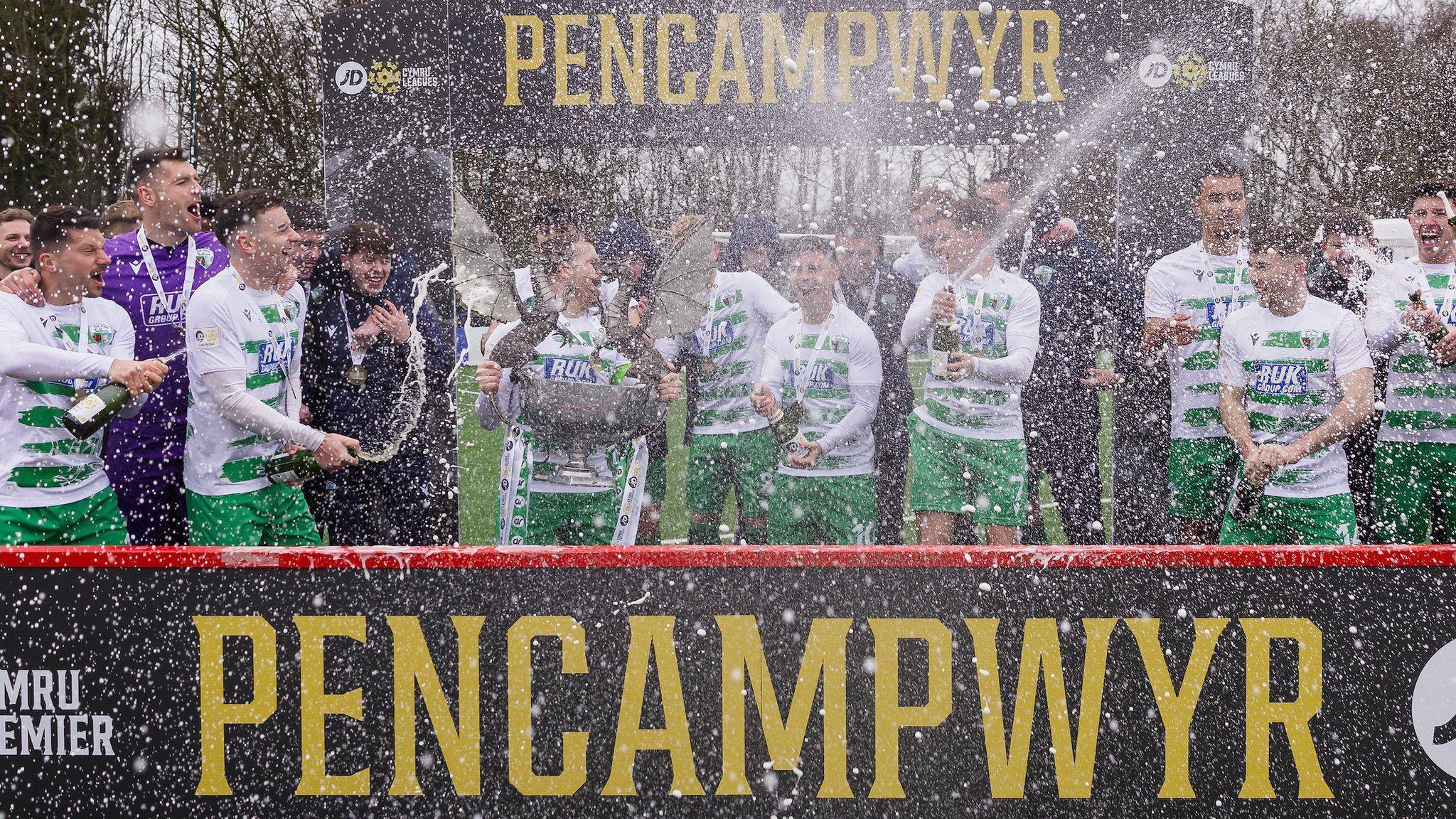Cymru Premier's need for change - and some love

The New Saints went the whole season unbeaten as they were crowned Cymru Premier champions
- Published
Make no mistake. The changes to the Cymru Premier league structure announced by the Football Association of Wales (FAW) are hugely significant and much needed.
What's more, as important as the cash investment is the game's rulers having a strategic plan for Wales' national league.
Since the major domestic league's inception in 1992, some of Welsh football's rulers have been at best ambivalent towards it.
Maybe it was because some lost their power bases and influence having previously had dominance.
Yet there has been progress. Seasoned observers are in little doubt the league has improved since 1992.
Before this week's presentation to clubs, the FAW showed a video of the league from its first season - when Cwmbran Town and their still much-missed manager Tony Willcox were inaugural champions. There were some quagmire pitches, to say the least.
The pitches have since improved, and the influence of coaches - many trained by the FAW - has helped.
Yet major issues remain, which is why the association has acted.
Notably, Wales' coefficient in the Uefa rankings has fallen to 52 from 55. The result is three clubs, rather than four, will qualify for European competitions next season.
Expansion planned in Cymru Premier revamp
- Published24 April 2024
Aber survive and Bay go down as TNS stay unbeaten
- Published21 April 2024
Should grassroots football in Wales be a summer sport?
- Published11 April 2024
In the words of the FAW's Jack Sharp: "We have to improve dramatically on that."
Surprisingly, in the Port Talbot meeting to announce the plans, there was no mention of summer football. In other words, having a season which would be more focused on doing better in European games, which are played in what most consider the close season.
In the spirit of change, maybe a significant alteration in the league calendar could happen down the line. We shall see.
But there is no doubt the move to bring in 'VAR Lite' is an effort to fall in line with momentum in European football, in case some time in the future the system becomes compulsory for entry into continental competitions.
The introduction of Friday night football may or may not be totally practical, but is surely worth a go. The Cymru Premier has to find some way of taking some attention away from the relative behemoths of Cardiff City and Swansea City and the increasing profile of Wrexham.
Added finance for marketing could all play into this.
The FAW-funded club development managers might also help avoid the asterisks which have impacted the outcome of the league this season, with tribunals docking points for various misdemeanours.
It remains to be seen how the league copes with the supremacy of The New Saints, other than finding another Mike Harris, who has the resources and vision to make the model work, despite small crowds.

The New Saints have won the last three Cymru Premier titles
The plans will have their critics. Indeed, all the ideas may not work.
But these are measures seeking to develop a league which has a devout following, yet must prosper in uniquely testing circumstances with the country's major clubs playing elsewhere.
The League of Wales, as it was originally called, was the brainchild of then FAW chief executive Alun Evans. It was very much his baby, though set up by necessity to help protect Wales' independence on the international stage.
Perhaps the most significant feature of these plans, is - as with its formation - there is finance and momentum from the top. As current chief executive Noel Mooney puts it, a bit of "love" is being shown.
Like or loathe the plans, such attention has to be welcomed.